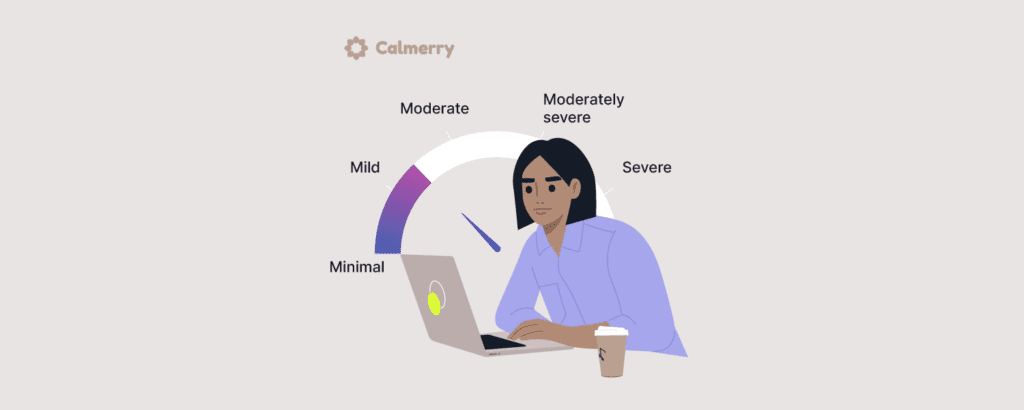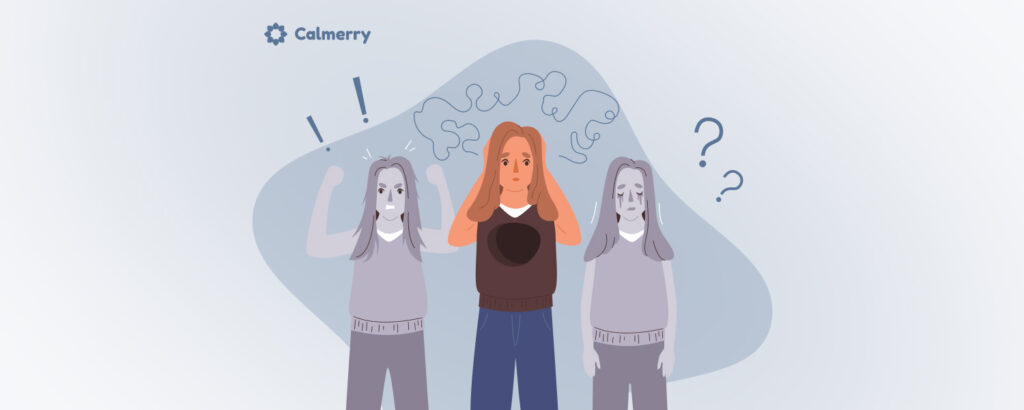Defining the MMPI Test: Implications of the Results

In this article
The MMPI is one of the most commonly used psychological tests in the world that assesses personality traits and psychopathology. Although it was created in the middle of the 20th century, the test remains popular even today, given its empirical tradition. The test has measures to check dishonest responses and to detect exaggerations.
Originally created in the 1930s, the MMPI has undergone numerous updates. Now, there are 2 versions of MMPI – MMPI-2 and MMPI-RF. The MMPI, however, remains one of the most common tools employed in psychometric assessments. The tool is used as a component of evaluations before employment, for clinical purposes, and in mental health care settings.
It contains ten segments that test different psychological issues. Also, the test is protected and requires the supervision of a certified therapist during its administration. It is very popular in clinical settings as a useful tool in the diagnosis and treatment of mental illness.
Despite its popularity, most people still have no clue MMPI is and its uses. In this article, we provide a detailed examination of the tool, including where and how it is used, the elements covered by its scales, and what the assessment results mean.
We also discuss these important points:
- The explanation of MMPI;
- The various scales contained in the tool what they scan for;
- The implications of test results for the patient and how to get help.
What Is MMPI? What Does the Test Do?
MMPI is a long-form, true/false test used to assess different elements of mental health and personality features. The primary use of the assessment is intended for clients suspected of struggling with various mental health complications or any clinical problems. While the original intention was to use the tool only in clinical settings, it has also started to become popular in employment assessments. It is also used in legal cases, including criminal defense.
The tool mostly comes in two versions for adults, the MMPI-2 and the relatively recent MMPI-2-RF. The first one has 567 questions where the participant has to provide answers of either true or false. The RF version of the test is shorter and consists of only 338 true/false questions. The revised version was created to speed evaluation and improve effectiveness. That said, the MMPI-2 remains more popular mostly since more therapists are more conversant with its use.
Please note that the MMPI is deemed as a protected tool for psychological assessment. This means that it should only be given and evaluated by a competent and qualified psychologist. Of course, it can be administered by computer without professional involvement, however, the testing is almost always done after a clinical interview with an expert therapist who is doing the testing.
Once the computer has recorded the assessment outcomes, the specialist can then generate a report that interprets the results according to the client’s present psychological issues and mental health history.
The original MMPI test was created using empirical test construction. The creators were trying to ensure objectivity. We should emphasize that test should not be taken by participants on their own, and it can’t be claimed to have absolute objectivity. People who take this test usually try to give inaccurate information to suit their interests. That is why the MMPI contains 4 validity scales to measure the person’s attitude and approach to test. The objective is to encourage truthfulness or check the degree to which the respondent is untruthful.
What Does the MMPI Test Consist Of?
The MMPI comprises 567 questions or items and 10 validity or lie scales. The objective is to assess the validity of each individual’s answers and check defensiveness, lying, or falsified replies. The goal of this is to eliminate the likelihood of test-takers to fake replies when taking the test and to present themselves in a more positive way.
The tool has clinical scales checking different mental health complications, including depressive conditions and anxiety. It also helps assess personality features and mental health.
The MMPI incorporates four essential validity scales, including:
- Frequency scale was created to detect when people answer the test question in the unusual or atypical way;
- Lie scale is intended to identify people who are deliberately dishonest with their responses;
- Defensiveness scale is intended to detect attempts of underreporting to present oneself in the best possible way;
- The cannot say scale is intended to assess the unanswered items.
Please note that all the questions in the tool are straightforward. You are only expected to determine whether the assertion is true or false. In a sense, the test is very easy to oversee. Once the therapist has all your answers, he or she will provide an arithmetical score founded on every one of the scales as well as numbers based on the validities.
What Can You Learn if You Take the MMPI Test?
The MMPI was created to check abnormalities in human behavior. There are also sections that test whether you presented inaccurate information. Here are 10 psychological conditions that can be measured using the test.
Hypochondriasis
This element of the MMPI was meant to assess whether clients had irrational concerns about the functioning of their bodies. Hypochondria, in this sense, is the inclination of a person to believe that he or she suffers from an undiagnosed medical problem.
In essence, people are said to have hypochondriasis if they believe that they have a severe and even life-threatening illness. Such people use incidences and anomalies to support their concerns. To them, a minor muscle ache or bruise is an indication of a worrisome diagnosis. Such fears can persist even when the client has visited physicians and have negative medical tests.
For individuals, such concerns and obsession about illness can be all-consuming and disabling. Patients may even stop going to work or travelling. Diagnosing hypochondria can allow counselors to work with the clients towards addressing underlying issues.
Depression
The second scale in the MMPI checks if the test taker has depression. This is meant to check your present mental health status. Depression, in most cases, is characterized by low morale, a negative outlook on life, and dissatisfaction with most aspects of one’s life. High scores on this second scale may be signs of depression. That said, someone who scores moderately on the scale may just be dissatisfied with his or her life.
Hysteria
The third scale comprises sixty items and is intended to identify persons who show hysteria in stressful situations. These are mostly people with emotional excesses resulting from trauma.
Psychopathic Deviate
This part of the tool assesses a client’s social deviation. The scale examines issues or complaints a person has with members of their family and figures of authority. Your level of social and self-isolation can also be checked. The objective is to check how well you relate to others in your social circles. Rebellious individuals tend to score highly in this aspect of the MMPI.
Masculinity-Femininity
The fifth component of the scale was designed to check things like sensitivity, passivity, tastes, and preferences. In other words, it checks how the test taker conforms to traditional stereotypes relating to femininity and masculinity.
Paranoia
The sixth scale was created to identify persons who have a tendency of being paranoid. Such people are often suspicious and tend to feel persecuted. They tend to be excessively sensitive and have very rigid attitudes. If a person scores highly in this segment, they may have distrustful tendencies.
Psychasthenia
Long ago, this diagnostic label implied people with phobias and obsessions. However, today, it is used to check for other issues. The issues checked in this scale are relatively more indicative of depressive disorders, anxiety, obsession, and compulsiveness.
Schizophrenia
The eighth segment was created to recognize schizophrenic persons. It assesses uncharacteristic views and bizarre judgments as well as poor family relations. If one scores highly in this scale, they may be facing trouble with managing compulsions and issues regarding sexual issues. This scale can also be used to assess the likelihood of drug abuse and social estrangement.
Hypomania
Hypomania essentially means a mood or state characterized by unstable, elevated mood, euphoria, and hallucinations. If test takers score highly in this ninth scale, they may be struggling with deliriums and delusions, as well as irritability.
Social Introversion
The final scale was created long after the other nine. The intention was to measure an individual’s outgoing nature or the tendency to withdraw from social interactions. Scoring highly here may just mean that the test taker is shy and less outgoing.
What Can You Discover from the MMPI Outcomes?
The MMPI was created to test an individual’s mental health. The questions included in the various scales measure diverse issues and identify challenges relating to dejection, anxiety conditions, and drug abuse.
While the MMPI was designed to be used mostly as an instrument for mental health diagnosis, employers are increasingly starting to rely on it for risky jobs. The items in this test are regularly updated and remain relatively effective when it comes to detecting disorders. Keep in mind that it is always a good idea to answer the questions on the scales honestly.
Discover More About Mental Wellbeing: Use Our Services
The MMPI is useful in measuring a person’s mental health. If you are interested in discovering more about your personality and wellbeing, we can help. Whether you have taken the MMPI assessment or not, you should talk to our competent therapists. At our online platform, you can find well-trained therapists offering affordable and private counseling. You’ll be able to talk to someone from the comfort of your home. Start your therapy today, and get the reliable help you need.
Try Calmerry therapy
online therapy
live video session



